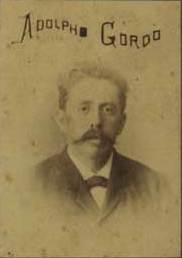Adolfo Gordo Law
According to historian Claudio Batalha in his book O Movimento Operário na Primeira República, under this law, 132 foreigners were expelled in the first year, a high number compared to the 556 expulsions between 1908 and 1921.
After the communist victory in the Russian Revolution of 1905 and the relationship between this event and the arrival of European immigrants in the country, workers' organizations saw this as a chance to put an end to capitalist exploitation of labor.
Among the government's reasons for interfering in the workers' struggle, was the fact that the movement was artificially controlled by foreigners, radical leaders who deluded Brazilian employees.
At this point, the 1921 Law on the Expulsion of Foreigners was introduced, proposing the summary deportation of people involved in organizations symbolizing disorder and within workers' actions.
[8] Adolfo Afonso da Silva Gordo, born in Piracicaba, had a law degree from the São Francisco College, and was a federal deputy and senator.
Despite the fight against anarchist influences surfacing in the 1920s after changes were made to the Law on the Expulsion of Foreigners, the aversion to the movement and its philosophy was already present in Adolfo Gordo's speech.
When defending the 1907 law that bore his name, he referred to the anarchist as "dangerous, a professional criminal and comes to our country with sinister plans".
[4][10] In another quote, Adolfo Gordo mentions deportation and talks about the right of the Federal Government, classifying it as "the power to force a foreigner, deemed dangerous, to leave national territory, regardless of legal proceedings and conviction".
As friction arose between the bosses and the workers coming from abroad, the disagreements sparked anarchist and socialist ideas from the foreigners themselves, in view of the working conditions at the time.
Regarding those married to Brazilian women with children in the country, he felt that expulsion was unrelated to family members, since they would have the option of accompanying the foreigner or not.
After all the obstruction by the business community, postponed votes and twists and turns in the discussions, the law was launched with the changes demanded by the disgruntled class regarding the form of payment of pensions and medical and pharmaceutical aid, which would be paid at the place of the establishment where the unexpected happened.
[5][11] Jornal do Comércio, O Dia and A Folha da Noite were totally against and critical of the law, describing it with adjectives such as "disaster", "monstrous", "unfortunate" and "infamous".
[11][5] On the other hand, newspapers such as A Imprensa, Gazeta de Notícias, O País and A Platéia saw the measure as a way of preventing the "excesses" of the periodicals, saying that those who were responsible were not afraid of the initiative.
[11][12] Associations such as the Nationalist League and the Lawyers' Institute of Rio de Janeiro and São Paulo were opposed, with the latter even drawing up a counter-draft.
